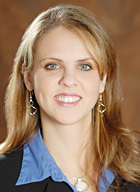
Is it time for a diet? Not a food diet, but a documentation diet. I’ve written previous blogs about documentation quick tips, top 10 reasons for denials, and so on. But, how many of you are guilty of over-documentation? Is that even possible? Well, yes, it is.
Let’s look at the big picture of documentation. The therapist and/or assistant provides treatment to the patient. Then, the person completes documentation to support the billing codes and claims that will be submitted to the insurance companies. This is done in a large variety of ways, but this is the basic principle.
The claims are generated by our business office personnel and sent to the fiscal intermediaries and private insurance companies for payment. On occasion, however — and the instances are significantly increasing — the claims are pulled aside for an additional review. This is also known as the additional documentation request, or ADR review. The fiscal intermediary requests the medical records and completes a pre-payment review to determine if medical necessity has been met. If they feel it has not been met, the claim is denied.
So, bottom line: It all comes back to the documentation. Now, let’s change our perspective slightly.
You are a therapist or assistant, but you are also an author. Congratulations, one more job title to add to your resume! As an author, it’s important to know who your readers are and what they want to read. Well, who is your most-likely reader? Probably the insurance claim reviewer.
Although the other members of the interdisciplinary team are also fellow readers, it’s the claim reviewer who is the most important. So, do you think that person wants to read the next great novel, or a short-and-sweet story that gets right to the point?
If I were the claim reviewer, I would only have the patience to read the short stories. So, here’s where we need to diet. We need to cut out the fat, the “fluff” statements and get right to the point of documenting medical necessity.
For example, why state “skilled PT/OT/SLP”? Isn’t the fact that it’s PT/OT/SLP imply that it’s a skilled service? How about changing out the words, “skilled” with “medically necessary PT/OT/SLP”?
Another example is using “fluff” statements, such as, “Patient is making gains in all areas, continue with plan of care.” What does that actually mean? What gains? What areas? Did we already explain this in the last five sentences? If so, simply stating, “Continue POC” gets your point across, but have you justified why you should be continuing?
Documentation must include two aspects — 1) skilled terminology to describe the treatment approaches and goals; and 2) why those treatment approaches and goals are an applicable standard of care based on the diagnoses used to determine our need for therapy services.
Just because you did a ball toss in standing with a red ball, doesn’t scream medical necessity. Using skilled terminology to explain the dynamic standing balance using PNF diagonals to alter center of gravity and promote weight shifting is a much more accurate and skilled description of our treatment.
However, that’s only part one. Part two requires that we also explain why the dynamic standing balance activity was an applicable standard of care for this patient, and we relate that back to our goals and discharge plans.
So I have some homework for everyone: Select a progress note, summary, daily treatment, etc., that you have already documented. Challenge yourself to see if you can rewrite this note using less words, better skilled terminology, and get to your point faster with improved evidence of medical necessity.
Feel free to email me your homework assignment for extra credit. Good luck!
Shelly Mesure (“Measure”), MS, OTR/L, is the senior vice president of Orchestrall Rehab Solutions and owner of A Mesured Solution Inc., a rehabilitation management consultancy with clients nationwide. A former corporate and program director for major long-term care providers, she is a much sought after speaker and writer on therapy and reimbursement issues.



